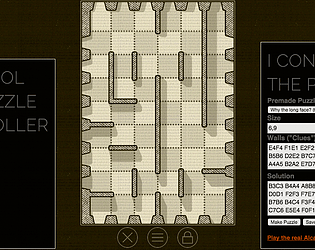Want to play NeoFeud on some weird device that doesn't have an official release? You can extract some of the files from the Linux download of NeoFeud and then load them into a certain web page that allows playing AdventureGameStudio games.
- (Purchase and) Download "Neofeud Linux Version 1.3.zip"
- Unzip it, then find a "data" folder inside of what results. It should contain a file called "NeoFeud.ags"
- Open up this page in your device's web browser: https://ericoporto.github.io/agsjs/
- On that page, click the "Choose Files" button. Use the file browser to find and select "NeoFeud.ags" along with "speech.vox" and "audio.vox" -- the game will play with only the .ags file, but you'll need to select the other ones at the same time to hear the excellent music and voice acting. Alternatively, you can select these files in your normal file browser and then drag them onto the "Choose Files" button.
- Once the game starts to play (no files are sent to the server, it's all happening in your local browser), you can press alt-enter (option-enter on Mac) to full-screen the game.
I've tested this process on MacOS 12.1 with Google Chrome just now. I was able to navigate menus and watch the introduction animation, but I didn't check to see if savegames work (I'd presume not). This process isn't specific to NeoFeud -- it should work for most other games that were built with AdventureGameStudio (like Decolonators).


